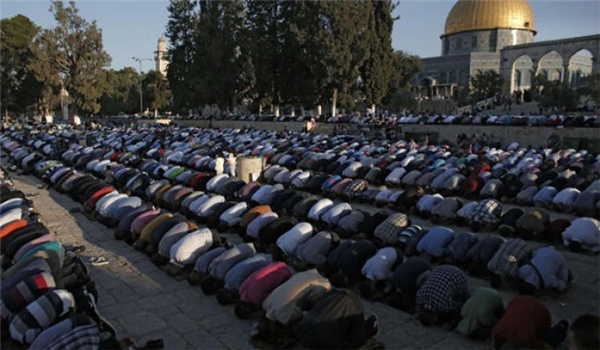
RNA - The Jordan-run Islamic Waqf department said among the hundreds of thousands of worshippers at the mosque were visitors from a variety of countries, including Malaysia, Turkey, South Africa, France, Russia, the United Kingdom, Jordan and Indonesia, Ma'an reported.
Addressing the worshipers at the holy site, Sheikh Omar Kiswani, the mosque’s director, said the masses of worshipers who attended the overnight prayers at al-Aqsa Mosque confirms to the entire world that “they worshipers came here to reaffirm the Islamic nature of this mosque and defend it.”
Earlier the day, the Israeli occupation authorities banned worshipers from the West Bank below the age of 40 from entering Jerusalem to attend overnight prayers at al-Aqsa Mosque. Worshipers between 30 and 40 of age were only allowed entry with a special permit issued by the Israeli authorities.
Sheikh Azzam al-Khateib, director of the Jerusalem office of the Islamic Waqf, condemned the Israeli measures and entry restrictions on Palestinian worshipers from the West Bank. He said all Muslim worshipers should have the right to access the holy site throughout the year and with no restrictions.
Laylat al-Qadr, is usually observed on the 27th day of Ramadan. Prayer on the holy night of is said to be better than 1,000 months of prayers, due to the abundance of mercy and blessings shown by Allah during a time when the Quran was first revealed to Prophet Muhammad.
The Al-Aqsa Mosque is the third holiest place in Islam after Mecca and Medina in Saudi Arabia.
847/940